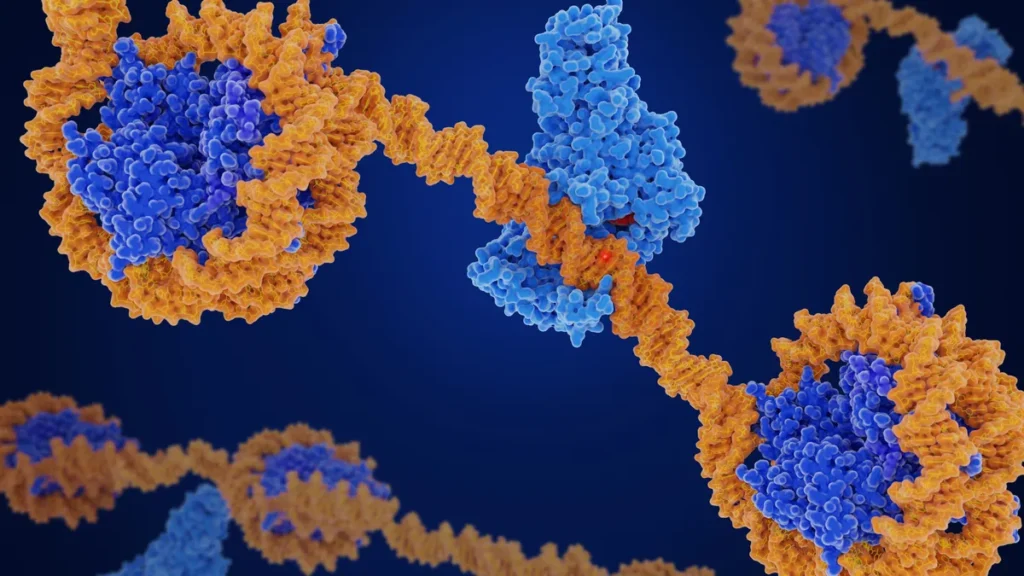
Therapeutics Company Tune Raises Over $175M in Series B to Advance Epigenome Editing
Tune Therapeutics, a leading company in the field of epigenome editing, today revealed the successful completion of a financing round totaling over $175 million. The funding was led by prominent investors including New Enterprise Associates, Yosemite, Regeneron Ventures, and Hevolution Foundation.
Tune Therapeutics, a leader in the rapidly advancing field of epigenome editing, has announced the completion of over $175 million in financing to accelerate the development of its innovative therapies. The funding was led by prominent investors, including New Enterprise Associates, Yosemite, Regeneron Ventures, and Hevolution Foundation. This significant investment will help advance the company’s pipeline, particularly Tune-401, its clinical-stage drug for chronic Hepatitis B (HBV), and support its broader mission to harness epigenetic therapies for treating a range of common and chronic diseases.

“It’s deeply gratifying to witness how far our platform and company have come,” said Dr. Charles Gersbach, Co-Founder of Tune Therapeutics. Dr. Gersbach’s pioneering research at Duke University led to the creation of the TEMPO (Tuning Epigenetic Mechanisms for Organismal) platform, the foundation of Tune’s therapeutic approach. “Tune has already reached a global milestone in applying epi-editing to chronic diseases. With the continued support of our investors, we are poised to develop many more groundbreaking epi-editing therapies in the future.”
The funding will primarily support the clinical development of Tune-401, the company’s first clinical-stage drug targeting chronic HBV. Chronic Hepatitis B is a major global health challenge, affecting more than 250 million people worldwide and leading to liver cancer in many cases. Tune-401 utilizes the TEMPO platform to epigenetically silence the viral HBV genomes that sustain the infection, offering a promising new approach to treat this chronic condition.
In addition to Tune-401, the company is expanding its focus to other gene, cell, and regenerative therapy programs, further solidifying its mission of transforming how common and chronic diseases are treated using epigenetic medicine. The company’s platform has demonstrated the potential to treat a wide variety of diseases by fine-tuning the genetic expression of cells, offering a new modality in the treatment of conditions that have been difficult to address with traditional therapies.
“We are incredibly proud to see Tune making significant strides in the clinic,” said Reed Jobs, Founder and Investor at Yosemite. “From the beginning, Yosemite has been an enthusiastic supporter of Tune’s potential, as we believe few technologies are as biologically powerful as epigenetic medicine. The possibilities for epigenetic therapies are vast, and we are excited to see how these advancements continue to unfold.”
William Greene, Chief Investment Officer at Hevolution Foundation, highlighted the potential of epigenetic editing to address the growing global challenge of chronic diseases. “Modern medicine has made great strides in extending lifespans, but far less progress has been made in maintaining active healthspans,” Greene noted. “Chronic diseases related to aging are becoming more prevalent, and current treatments are insufficient. We believe epigenetic editing holds the key to a new era of regenerative medicine, and we are excited to support Tune’s work in this transformative field.”
Since its founding in 2021, Tune Therapeutics has made remarkable progress in advancing its unique epigenetic editing platform. One of the company’s most notable achievements was announced at the 2023 American Society of Gene & Cell Therapy (ASGCT) conference: the durable repression of the PCSK9 gene in non-human primates using genetic tuning. This repression resulted in a sustained reduction in LDL cholesterol levels, which is still ongoing nearly two years after a single delivery of the epi-silencing construct. This achievement marked a global first in the field of epigenome editing and underscored the transformative potential of the company’s platform.
Later in 2023, Tune introduced Tune-401, the first-ever epigenetic silencing drug aimed at treating chronic Hepatitis B. The company then moved its clinical program into human trials, receiving approval to begin clinical studies in New Zealand and Hong Kong with the support of internationally recognized hepatologists, Dr. Ed Gane and Dr. Man-Fung Yuen, respectively. This clinical advancement has energized the company as it continues to expand its capabilities and work on additional gene and cell therapy programs.
“With this renewed financial backing, we are in a strong position to advance our HBV clinical program and to invest further in our platform and broader pipeline,” said Akira Matsuno, Co-Founder, President, and CFO of Tune Therapeutics. “We are grateful for the confidence shown by our investors in our team and approach, and we are excited to continue building on our compelling data, which highlights the potential of epi-editing to revolutionize therapeutic development.”
Looking ahead, Tune Therapeutics is focused on expanding its clinical and preclinical pipeline, including further advancements in gene editing and regenerative therapies. The company’s TEMPO platform offers a versatile tool for silencing specific genes, creating tailored solutions for a broad range of diseases that could benefit from epigenetic modulation.
About Tune Therapeutics
Tune Therapeutics is pioneering the development of epigenetic medicines using its TEMPO platform. The company aims to transform gene, cell, and regenerative therapies by making them applicable to common and chronic diseases. Through precision genetic tuning, Tune seeks to provide transformative therapies that offer lasting solutions to patients worldwide.
About Tune-401
Tune-401 is an investigational product aimed at treating chronic Hepatitis B. The therapy uses Tune’s TEMPO platform to epigenetically silence HBV genomes, specifically the viral cccDNA and intDNA, which are essential for the virus’s persistence. Tune-401 utilizes lipid nanoparticle technology provided by Acuitas Therapeutics Inc. to deliver the therapy effectively to the liver.




